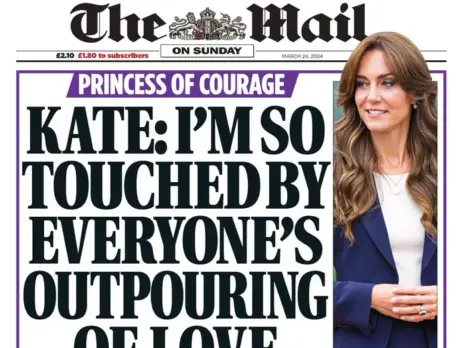
One of the unexpected consequences of the the News of the World phone-hacking scandal was the exposure of what the Met Police described as a “suspected conspiracy involving the gathering of data from stolen mobile phones” at The Sun.
The Sun mobile data “conspiracy” appears to be on the brink of completely unravelling (though two journalists remain on police bail in connection with this aspect of the Tuleta inquiry) leaving serious questions about heavy-handed tactics from the Met Police and the actions News Corp’s own Management and Standards Committee.
In July 2012, Sun reporter Rhodri Phillips was arrested on suspicion of handling stolen goods.
On 20 September 2012, Sun casual reporter Chris Pollard was arrested on suspicion of involvement in a "suspected conspiracy involving the gathering of data from stolen mobile phones”.
Both were finally told last month that they face no further action. And both are understandably confused as to why such a relatively minor charge prompted dawn raids on their homes, arrests, questioning in police stations and large quantities of their personal belongings being seized and poured over by police.
One feels more sorry for Phillips, whose children were aged two and six at the time his home was raided and searched and who had to watch their father being taken away.
It seems that police suspected some sort of conspiracy involving phones being stolen to order and hacked into by The Sun.
The reality appears to be far less sinister.
The actions which saw Rhodri Phillips (pictured below) arrested date back to late 2010 when the phone of Labour MP Siobhain McDonagh found its way into the hands of The Sun.

Phillips was handed a transcript of text messages from the phone and asked to send a memo about them to the newsdesk.
It is possible that if there was sensitive information on the phone there could have been a 'security scare' style story. Perhaps The Sun was on a general fishing trip? In any case the Phillips memo said that there was no story, and it is believed that the phone was returned to the MP.
My understanding is that Sun journalists believed the phone had been left on a train, though it later emerged that it had been stolen from a car.
There the matter would have rested if it wasn't for the actions of News Corp's Management and Standards Committee.
In the weeks after the closure of the News of the World in July 2011 as a result of the phone-hacking scandal, the MSC was tasked with purging News Corp’s surviving newspaper titles of any criminal wrongdoing. As one MSC lawyer memorably said, they wanted to “drain the swamp”.
Phillips’s email was uncovered by the MSC and handed over to the Met, prompting his arrest and forming the basis for the case against him. I do not know if the email was handed over as a result of a specific request, or at the intitiative of the MSC itself. Either way, it is a bizarre way for a publisher to behave.
Sun colleagues were outraged at the way Phillips was treated and it appears difficult to see any way that his actions could be construed as "handling stolen goods" – as the police alleged. Though it should be noted that News Corp did concede that McDonagh had a civil case for breach of privacy.
In March 2013 News International paid McDonagh “very substantial damages” over a “very serious misuse of her private information”.
In civil law terms, it appears The Sun should not have snooped about in McDonagh’s private text messages. And questions remain about who made that transcript of information from her phone and how the information was accessed.
But Phillips was clearly just a journalist doing his job
The Chris Pollard case involved another missing mobile phone, which later also turned out to be reported stolen.

He was working an evening shift in October 2009 when a member of the public phoned up claiming to have a found an iPhone in a nightclub. They said that it contained ‘sexts’, sexual text messages and images, sent from a famous married celebrity.
There was some suggestion that the individual had behaved inappropriately on BBC property, which might have given the tabloid firmer ground to stand on in terms of a public interest defence.
Pollard wrote up his conversation, including details of the text messages, and sent a memo to the newsdesk.
A colleague was dispatched to pick up the phone. According to one well-placed source inquiries were made with the owner of the device to find out if they wanted to sell their story. They didn’t and the mobile was returned to the police.
Pollard was arrested three years later on the basis of that newsdesk email and (I understand) because it was mentioned in another email that he had advised a colleague how to operate the phone (it was an iPhone, and my understanding is that it was not locked).
Again, The Sun may have overstepped the mark in terms of privacy. And I believe a civil legal claim relating to this case remains outstanding.
But again, this does not look to me like a criminal conspiracy requiring huge amounts of police resources to investigate.
And by any stretch of the imagination, Chris Pollard did not deserve the dawn-raid arrest treatment.
Again, one has to wonder why the police were so heavy-handed and why the MSC (which had two extremely experienced journalists on board in the shape of Will Lewis and Simon Greenberg) felt it necessary to put two Sun journalists through this needless ordeal.
The reputation of The Sun is still on trial, with some 12 journalists set to face trial over allegations of conspiracy to make illegal payments to public officials for stories.
But the suggestion that the paper was home to a conspiracy to hack information from stolen mobile phones appears to be very wide of the mark.
Email pged@pressgazette.co.uk to point out mistakes, provide story tips or send in a letter for publication on our "Letters Page" blog







